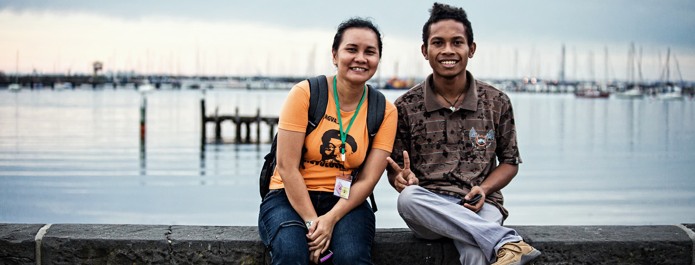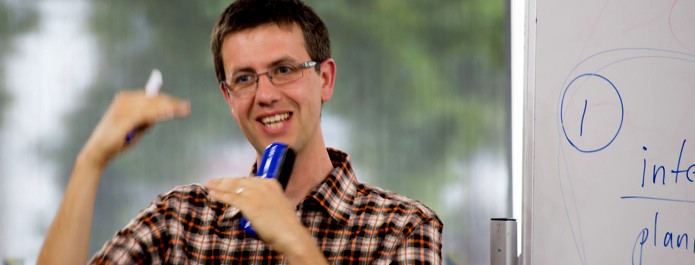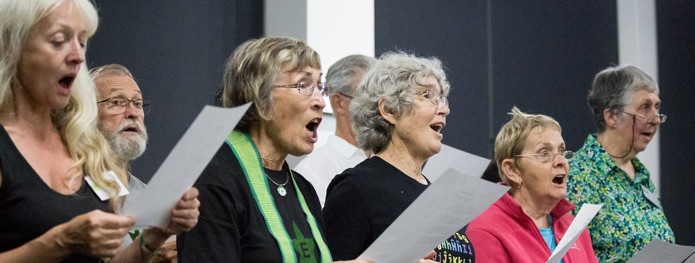Australia-New Zealand Congress/Summer school – Melbourne (02 – 11 January 2015)

Ilia Dewi (Indonesia) & Teofilo Jesu Maria de Jesus (East Timor), during the excursion to St Kilda
Fifty people from seven countries participated in the joint Australian and New Zealand congress and summer school at International House, Melbourne University.
Because we really want to improve our relations with our neighbouring countries, we invited Ilia Dewi from Indonesia and Teofilo de Jesus from East Timor. Both represented their countries well.
“The congress was held in a pleasant atmosphere and our acute internal problems of the past few years certainly nearly disappeared into the darkness of history,” said Sandor Horvath, the current AEA president.
Our own Trevor Steele taught the experts about the Crusades, Richard Newsum led the intermediate level, and Ilia, our guest from Indonesia, taught the beginners.
Some of the outstanding presentations were the staging of the film 54 Days with subtitle in Esperanto, the Indonesian evening, and our first remote presentation, by Richard Delamore about Esperanto-TV.
We hope that our next congress will be a common, three-country (Indonesia, Australia, New Zealand) one during Easter 2016 in Bandung, Indonesia. Of course we will welcome visitors from all countries.

Chris Krageloh speaking about interlinguistics
Feedback from the participants
Overall, the congress and summer school received positive comments from a number of people (“good”, “enjoyable”, “I learnt a lot”). The organisation of the event, including information on how to get there, was also praised. However, one respondent pointed out the need to attract more young people.
The venue also received positive comments, for its convenience (“everything in the one place”), accommodation, dining room, main program room, food and the friendly workers. One person appreciated the vegetarian options. However, one aspect of the venue that received most negative comments was the Wi-Fi: very difficult to connect (only four devices could be connected at once) and often very unreliable and slow.
The lessons were generally well received, and all three teachers praised. However four respondents in the intermediate class stated that they would have preferred a level between beginners and intermediate, with one expressing difficulty with the direct method. One respondent in the advanced class complained that bad pronunciation by some participants (which made it hard to understand the text) was not corrected.
A number of respondents praised the program (“a good mix of lectures”, “well organised”, “a good balance between excursions, lessons and individual presentations”). The excursions were described as “enjoyable” by three respondents, but two complained about the confusion with time-coordination between the “Ecological Melbourne” and “NGV” excursions. Two respondents suggested that there could be a better balance between Esperanto and English, and one suggested afternoon sessions for beginners or less experienced Esperantists. Other suggestions were:
• to place electives after dinner
• to have talks about Melbourne or Victoria, for those visiting the city
• to have an event for beginners at the same time as the AGM
• to organise a Google Hangout, so those not attending the congress could watch the lectures live from anywhere in the world, and so that we could have more lectures from non-attenders, such as Richard Delamore’s presentation.
One miscellaneous comment was a complaint about the disruption caused by photography within lessons, particularly when a flash was used.

The congress choir performing
